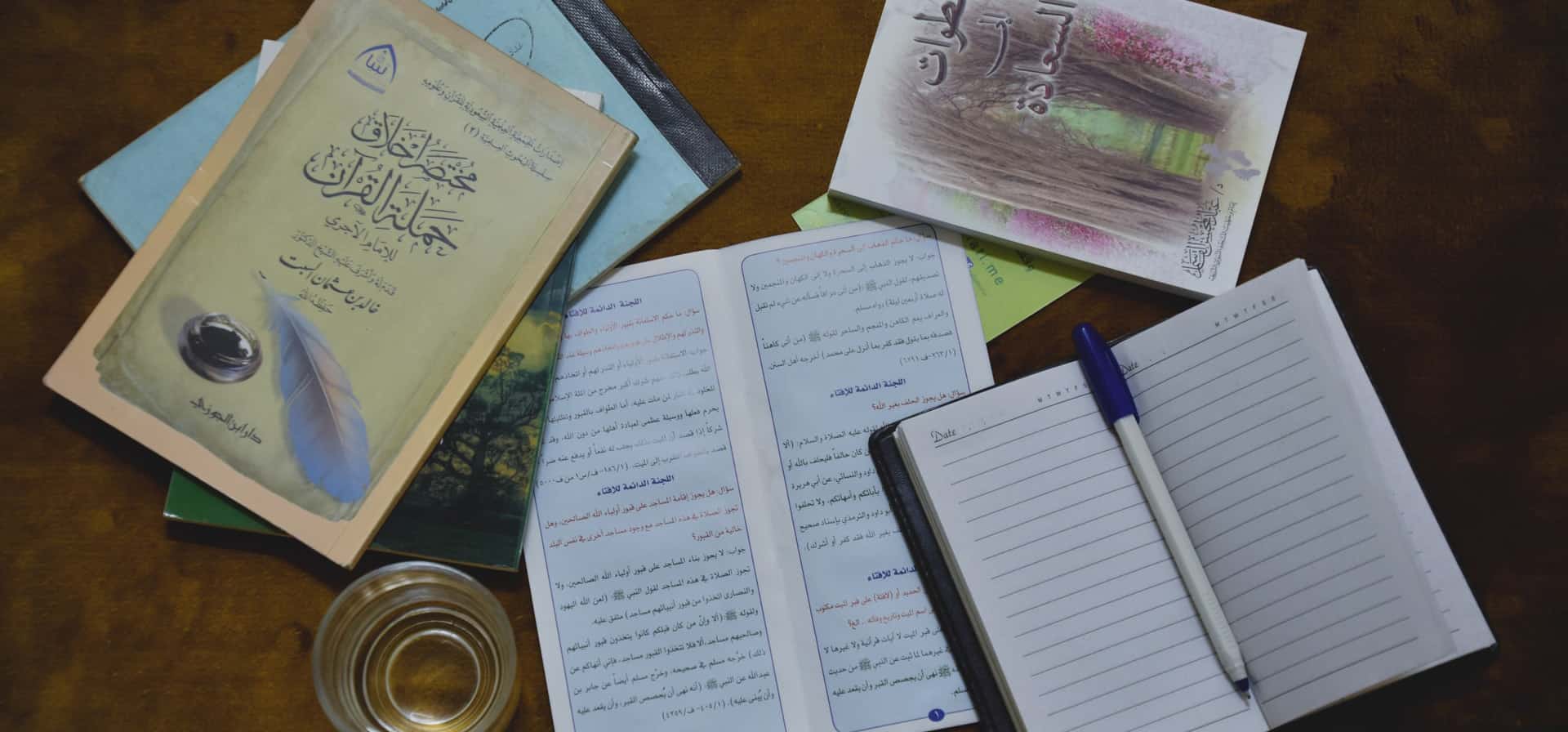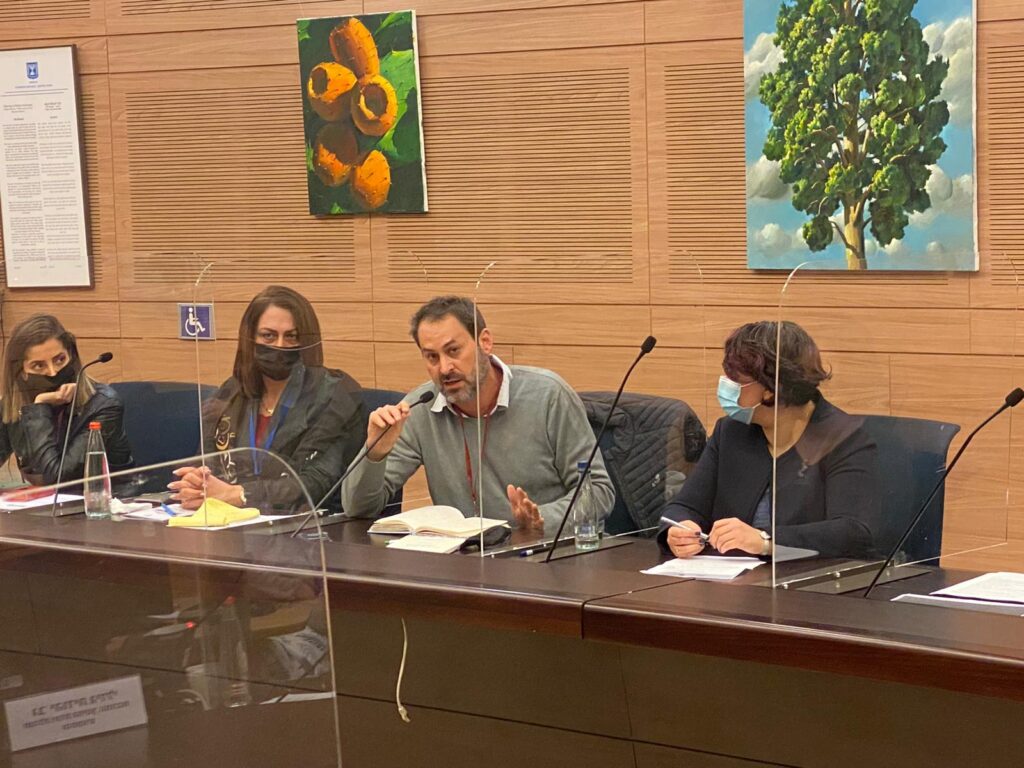Opinion: (Where is) the Arabic language in the education system

Why is interest in the Arabic language absent from the school curriculum? What would it take to turn it from a foreign language into a close and nonthreatening one? Noga Fainguelernt, the academic coordinator of the Israel in the Middle East cluster, explains why we must stop being afraid of the Arabic language and start thinking outside of the box about learning it.
Arabic in the public discourse
On January 25, 2022 the Knesset marked “Arabic language day,” just weeks after the status of Arabic, in the Knesset and in general, drew wide attention following the Arabic speech of Knesset member Walid Taha. The presence of Arabic on the Knesset podium was so unusual that it drew attention to its ongoing absence, and sparked a furor from all sides of the political spectrum.
Just a few weeks earlier the issue was discussed on the opinion pages of "Haaretz", when Hanin Majadli described the erasure of the Arabic language in the public sphere in Israel. On the other hand, some, such as Ron Gerlitz, pointed to a positive trend of the increasing presence of the language in some areas.
The amount of interest the Arabic language draws in the public discourse, and the emotions it arouses, are almost completely absent from the Ministry of Education’s curriculum. The dissonance between the vitality of the public discussion and the static curriculum is astonishing.
The language of the region
The importance of learning Arabic was clear to the residents of the country well before Israel was established. The School of Oriental Studies was established at Hebrew University in 1926, and was one of the first two institutes in the Faculty of Humanities. Almost 100 years after the founding of Arabic language studies in this country, many think that not much, or not enough, has changed. Israel is located in the Middle East, among Arabic speakers within and without, yet the Ministry of Education's curriculum makes almost no place for the living presence of the spoken and literary Arabic and its culture, or for active competence in the language.
A research report written at the Van Leer Jerusalem Institute together with the Abraham Initiatives, “Arabs, Jews, Arabic: Arabic Teaching in Israel and its Challenges,” reviewed the field of Arabic instruction in Israel, both from a historical perspective and from the perspective of today's students. The report found that Arabic instruction in Israel suffers from a number of continuous inherent problems, both in terms of the teaching approach and in terms of motivation to learn, teacher training and more. The report also found that the students actually want the studies to be different: more alive, learning to use Arabic as a language of communication, and promoting Jewish-Arab encounters. Furthermore, the report sought to promote principles for teaching Arabic from a progressive and comprehensive approach, in the first attempt at educational thinking about a future situation wherein Arabic is studied from grades 1-12. We argue that thinking about Arabic has heretofore been within a box and there is an opportunity and need to think outside of it: to imagine how Arabic really should be taught at Hebrew schools in Israel and to discuss it.

In other words, if Arabic is given a place of honor as a basic subject beginning in the first grade, and subsequently becomes a compulsory subject for matriculation and undergoes a significant reform in teachers’ training and in the integration of Arab teachers and researchers, there is no doubt that the capacities with which the students will graduate the education system will improve significantly. All the more so if their skills enable them to hold a conversation, write an email in Arabic, and consume culture in Arabic.
Unlike English, or even French that is learned in some schools, Arabic is not a “foreign language” (or a “second foreign language” as it is defined by the schools). Arabic is the language of the region as well as the language of 20% of the citizens of Israel and many others who immigrated from Middle Eastern countries. Therefore, the Arabic curriculum should be different, integrating, promoting, advanced, communicative, to promote the Arabic language and acquaintance with its speakers. Adding native Arabic-speaking teachers has tremendous value. Besides the pedagogical value of studying the language with teachers who have the natural ability to hold a conversation in it, it also has the value of breaking stereotypes and building bridges between communities and cultures. Language is, after all, a means of communication between people, and Arabic is no different in that regard from any other language. Bringing the curriculum into line with that principle would only benefit us.
For further information, read the research report: “Arabs, Jews, Arabic: Arabic Teaching in Israel and its Challenges,” and watch the video of Dr. Yonatan Mandel speaking about the report at the Knesset education committee (beginning at 21:36).




